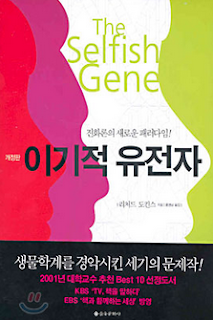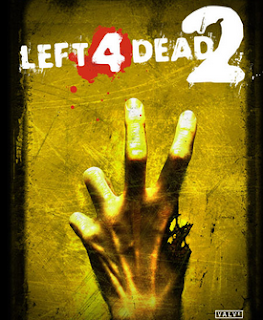 |
| Being a minjok? Hmm.. |
The
word minjok, translated as ethnic group or race, is often used by Koreans to
show off their nationality and strong bond between them. For instance, when the
World Cup is being held, thousands of Koreans gather together in front of huge
screens and cheer their team up, based on the thought that they are one minjok.
The
thing is, however, is that people considering minjok as a natural phenomenon,
just because they have the same blood flowing inside them. Moreover, history of
Dangun, Korean dynasty, Joseon dynasty, and hardships Koreans went through such
as 1592 Japanese Invasion are the evidences of minjok Koreans are proposing. However,
what meaning do these convey? People at the time in these hardships may have
felt ethnicity, but I thought these meant nothing to people in present. Because
these are the only things Koreans are utilizing to prove minjok, I believe the
minjok concept is actually ambiguous.
On the other hand, I cannot neglect and deny the concept of minjok
because as a Korean, I’m feeling a kind of bond between Koreans, too. To give
my personal experiences, the first one is when I went to Canada when I was a
4th grader in elementary school. As I’d seen lots of movies and dramas with the
plot of Americans bullying Asian transfer students, I had fear before going to
the school. However, it was the exact opposite. Canadian friends treated me as
a special being, not a weird one, just because I’m Korean. They approached me
earlier than I did to them, so I was able to easily adapt to the school. From
such experiences, I started to feel proud about my nation and being part of
Korean minjok. Although I mentioned there is no specific evidence of minjok, I
surely did sense what being a part of Korea meant.
In addition, I was one of the people I mentioned above, the one who
cheered my team enthusiastically in front of the screen. When the Korean team
was struggling against a statistically-better team, all of us shouted ‘fighting!’
and wished our team the best. When the team won, we cheered throughout the
whole night, and when it lost, we posted quotes like, ‘cheer up, you did your
best’ on the Internet to soothe their disappointment. I was never compelled to
cheer only the ‘Korean’ team, but I guess some kind of invisible bond led me
to.
After
such experiences, I still doubted whether the minjok exists or not. The fact
that I cannot explain logically why I sensed these feelings in the experiences
above really complicated my thoughts about minjok. As I was thinking
continuously, one conclusion came up to my mind: Being a minjok doesn’t have to
be explained with logic. As a Korean, I have always felt proud and linked to my
nation Korea, which is one of the reasons I applied at KMLA. On the other hand,
I couldn’t illustrate why such feeling exists, so I decided to consider it as
an implicit human nature, like love or friendship. Every citizen of every
country has it, but individuals just have difference in extent. For example, Koreans
are unique because they are known to have greater extent of ethnicity than any
other nations.
 |
| Minjok- always good?? |
There’s
one more thing to be considered: is the concept of minjok always good? The
answer is absolutely ‘no’. Minjok, ethnicity in other word, is always related
to nations. If the extent of minjok increases to a level in which people regard
the nation equal to each individual, a problem of serious nationalism occurs. The
notion ‘nationalism’ is not a bad thing itself, but there were lots of
historical examples how severe nationalism led to bad endings of nations such
as Nazis. Adolf Hitler’s nationalism was so serious that he differentiated every
other country from his own, and even suppressed races such as Jews. This tells
how dangerous the concept of minjok can be, as it can make an illusion that one’s
nation the best in everything.
Then which level is Korean minjok in? To be frank, Koreans have one of
the strongest ethnicity in world. There are lots of real-life examples of how
Koreans ostracize other races and nations, especially inside Korea. There’s
even a slight sign of nationalism, and the best example is a Korean anchor’s
tears. When it was announced that PyeongChang, a city in Korea, will hold 2018
winter Olympics, an anchor dropped her tears because she was really touched by
the fact. Though lots of people shared her feelings, some raised questions
about it really seriously. They thought that the anchor crying publically
because of nation’s happy occasion implies, ‘country’s good equals individual’s
good’, the basic concept of nationalism. Although it is a great thing our
country holds the Olympics, I also agree that the extent of that anchor’s
ethnicity was a bit much. The thing is that this is not only her problem. It
includes every Korean, and Koreans should learn from an ancient idiom, ‘too
much is as bad as too little’, and should lower the level of ethnicity.
 |
| no severe nationalism! |
So
as a conclusion, though the existence of minjok cannot be explained logically,
it does exist as all people are experiencing it every second. The existence of
it is advisable, because it enhances relationships and cooperation between people,
so the concept itself is not a problem. The only problem is ‘extent’. No one
gets any disadvantage just because people have strong bond between the same
races. However, if the extent becomes too much, lots of people are harmed. As
Koreans are developing more intense ethnicity as the time passes, we should
always keep in mind; too much is as bad as too little. Through such thought,
Koreans should maintain reasonable extent of minjok, which will lead to a
harmony of both nation and the world.





























